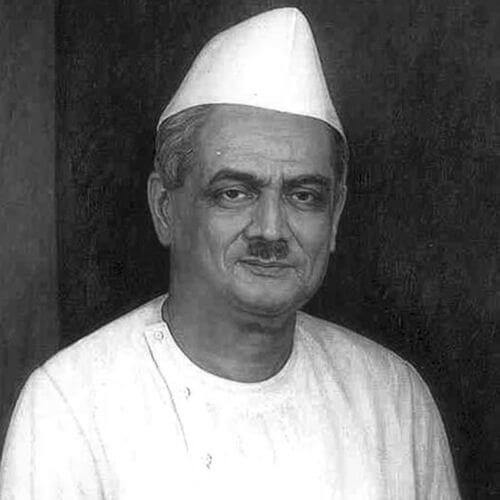Early Life
Ganesh Vasudev Mavalankar, popularly known as Dadasaheb, was born on 27th November, 1888 in Baroda (now Vadodara). He obtained his B.A. in Science from the Gujarat College in Ahmedabad. He completed his law degree in 1912.
Mavalankar established himself as a prominent lawyer and was an active social worker. He was selected by the Congress party for the Presidentship of the Sixth Central Legislative Assembly in January 1946.
Role in India’s Independence Movement
Mavalankar played an active role in the freedom movement in Gujarat. He was associated with various national leaders like Sardar Vallabhai Patel, Mahatma Gandhi as well as a various social organisations in Gujarat.
Mavalankar became associated with the Indian National Congress after he joined the Non-Cooperation movement under the leadership of Mahatma Gandhi. He was appointed as the Secretary of the Gujarat Provincial Congress Committee during 1921-22 due to his contributions to the movement.
Mavalankar played a vital and active role in the ‘Khaira No-Rent’ campaign. He was actively involved in famine and flood relief works.
Contribution to Constitution Making
Mavalankar was elected to the Constituent Assembly from Bombay on a Congress party ticket. He presided over the Constituent Assembly (Legislative) which acted as the legislature (between 1946-1950). He did not participate in the Constituent Assembly Debates otherwise.
Later Contributions
Mavalankar became the Speaker of the Provisional Parliament (1951) until the first general elections (1952). He was then chosen as the Speaker for the First Lok Sabha in independent India on 15 May 1952.
As Speaker, he set up various committees like the Rules Committee, the Committee of Privileges, the Business Advisory Committee, the Committee on Private Members Bills and Resolutions, and the Committee on Salaries and Allowances. Despite his links with Congress he was widely considered a non-partisan Speaker. He resigned from the Speaker role in January 1956 due to health issues. Jawaharlal Nehru referred to him as the ‘Father of the Lok Sabha’.
Mavalankar was associated with a number of organisations and trusts that worked on social service, rural upliftment, and the development of the underprivileged.
He passed away on 27 February 1956.
Key Writings
Mavalankar published books in Gujarati and English. One was titled Manavatana Jharna and it contained stories about prisoners. He also wrote Sansmarano which was devoted to his reminiscences of Mahatma Gandhi’s life and the communications he received from Mahatma Gandhi. In the book titled My Life at the Bar, he recounted his experiences at the Bar. His other works include – A Great Experiment and G.V. Mavalankar Speeches and Writings.
- Dada Saheb Mavalankar Father of Lok Sabha, edited by Subhash C. Kashyap (1957).

